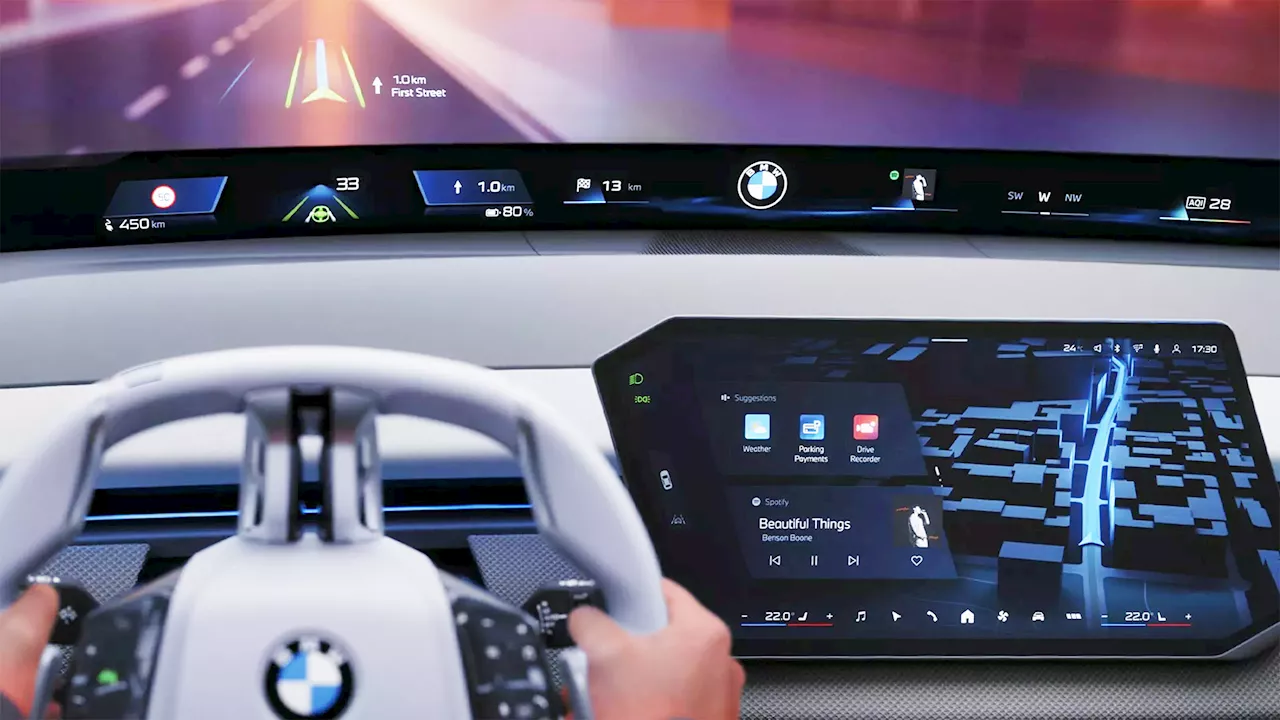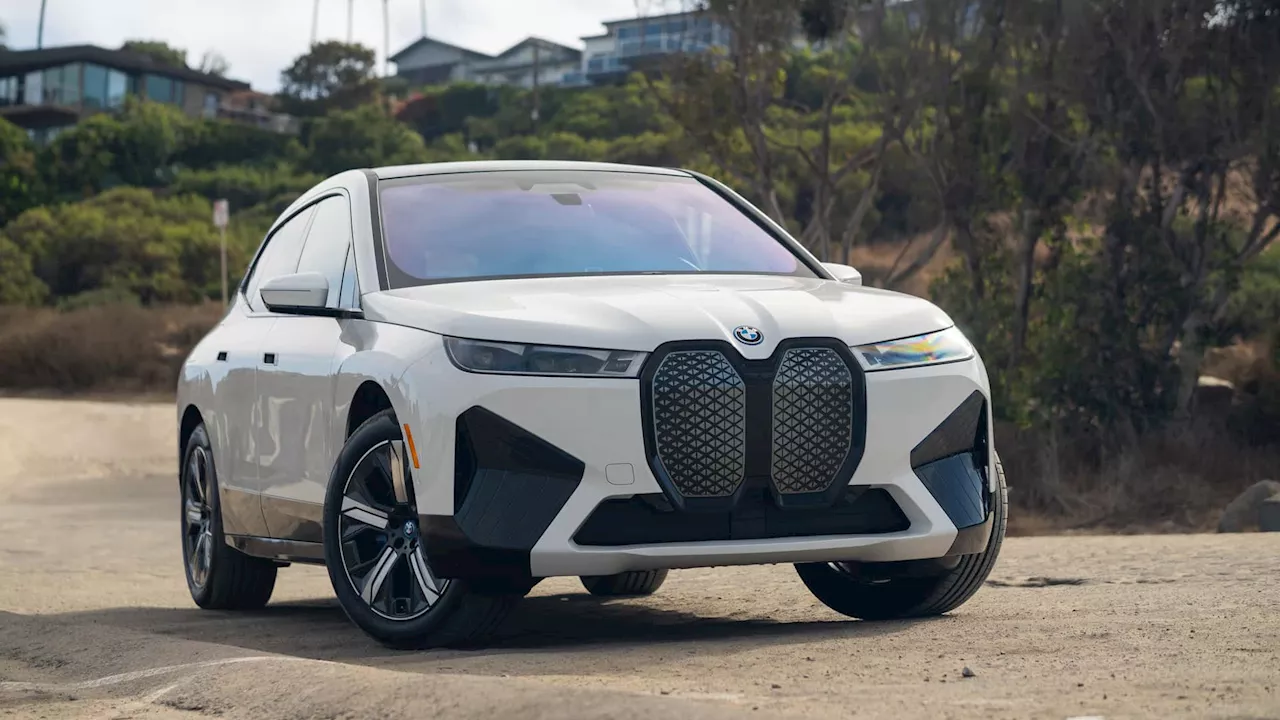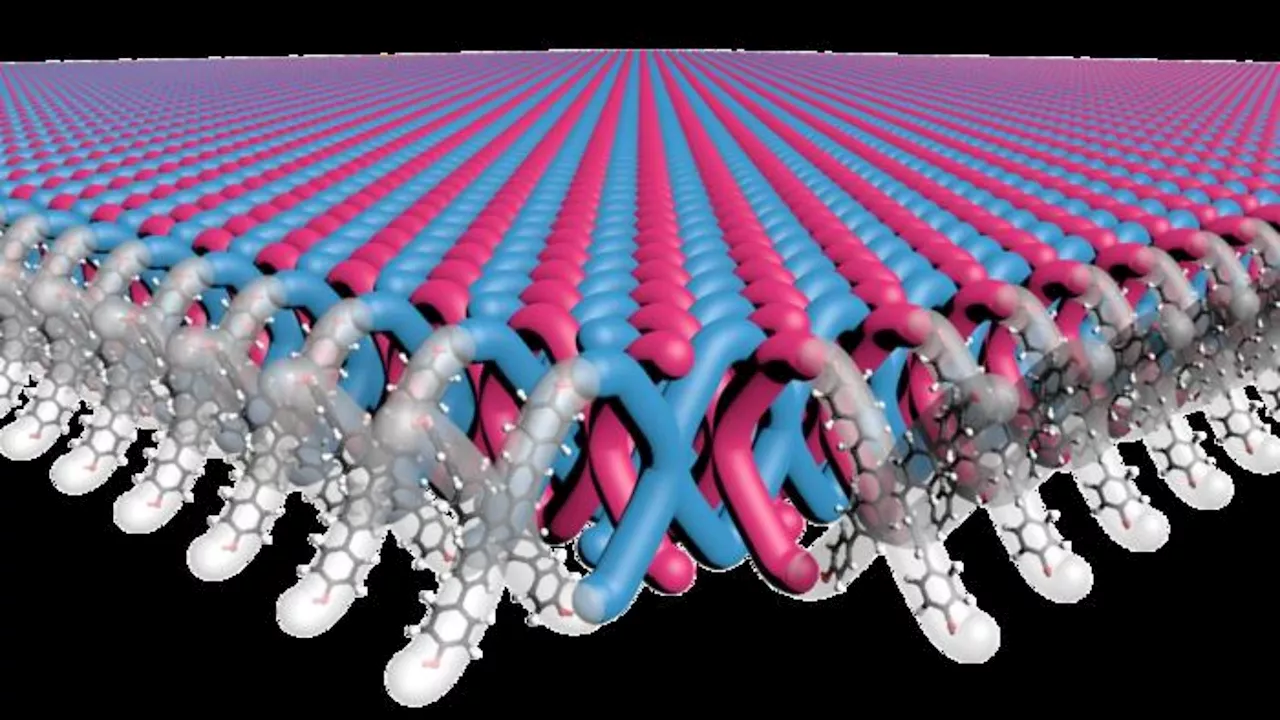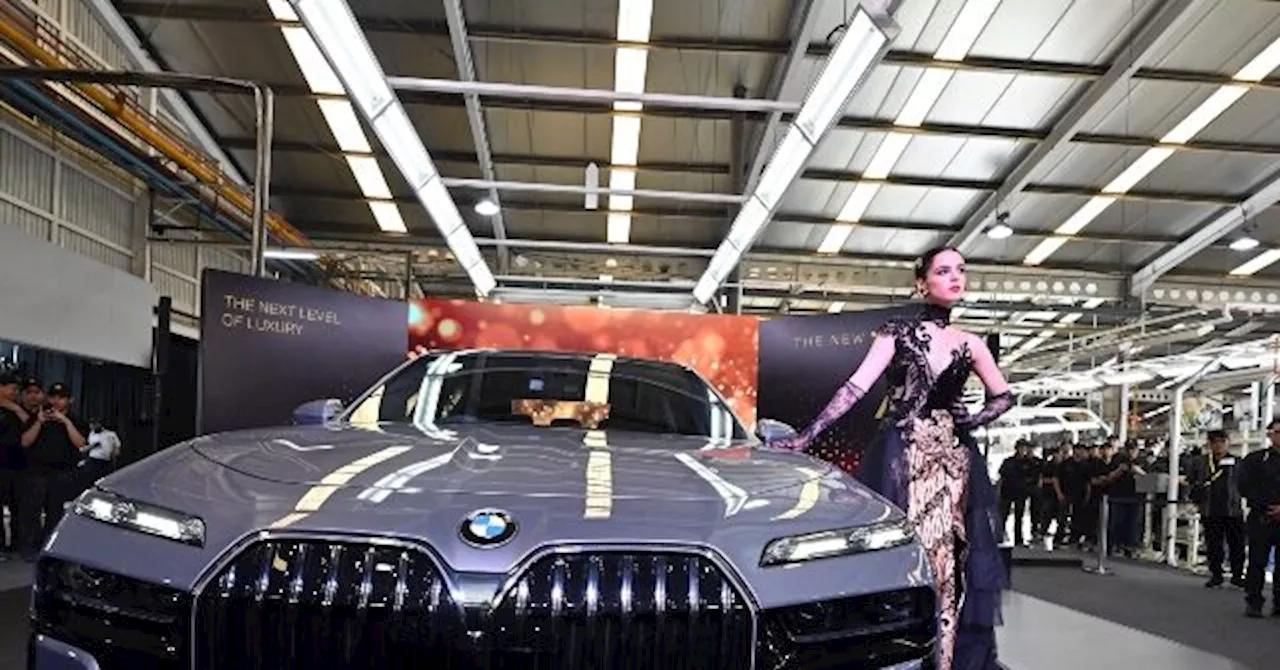BMW's strategy of investing in flexible platforms that can accommodate various powertrains is proving successful as the automotive industry transitions to electric vehicles. Unlike some rivals who have focused solely on EV platforms, BMW's adaptable approach allows it to balance its product mix and respond to evolving market demands. While facing challenges in certain markets, BMW remains committed to its multi-pronged strategy, investing in both combustion engines, hybrids, and electric vehicles. The company's upcoming Neue Klasse platform promises to further solidify its position in the EV market.
BMW 's conservative approach to EV adoption, investing in platforms that can accommodate internal-combustion, hybrid, and electric powertrains, is now paying off as the company navigates the uncertain transition to electric vehicles . As the automotive industry grapples with the challenges of transitioning to electric vehicles , BMW 's strategic decision to invest in flexible platforms is proving to be a wise move.
Unlike some of its rivals, such as Mercedes and Audi, who have focused heavily on dedicated EV platforms, BMW has taken a more measured approach by developing architectures that can support multiple powertrains, including internal-combustion engines (ICE), hybrids, and full electric systems. This flexibility has allowed BMW to adjust its product mix more easily in response to market demands. Models like the i4, i5, and i7 share platforms with their gas-powered counterparts, enabling the company to maintain a balanced portfolio as consumer preferences evolve. In contrast, other manufacturers who have invested heavily in EV-specific platforms may find it more difficult to pivot if the market doesn’t develop as quickly as anticipated. Jochen Goller, a BMW board member, recently acknowledged the uncertainties surrounding the shift to electrification, stating, “I think it would be naive to believe that the move towards electrification is a one-way road. It will be a rollercoaster ride.” This sentiment underscores the importance of BMW’s diversified approach, which includes continued investment in modern combustion engines and plug-in hybrids alongside the rollout of new electric models. BMW’s strategy has positioned the company well in terms of global EV market share. In 2024, the automaker sold a record 426,594 EVs worldwide, representing approximately 17 percent of its total sales. When combined with hybrid and other electrified vehicle sales, this figure rises to around 25 percent. This balanced mix has allowed BMW to meet EU emission targets without resorting to heavy incentives to drive EV sales. However, the company faces challenges in certain markets. In the United States, the potential elimination of EV tax credits and increased tariffs under the new presidential administration has created uncertainty. Fortunately, BMW’s domestic production of most of its high-margin SUVs in the U.S. helps mitigate these risks. In China, the automaker faces stiff competition from local brands that offer affordable, high-tech options, leading to a decline in sales for imported vehicles. Despite these hurdles, BMW remains committed to its multi-pronged approach. The company plans to launch its Neue Klasse platform this year, which promises competitive EVs with longer range, faster charging, and a strong emphasis on software. This move could help establish BMW as a leader in both multi-energy powertrains and the growing market for software-defined vehicles
BMW Electric Vehicles EV Transition Flexible Platforms Automotive Industry Neue Klasse
United States Latest News, United States Headlines
Similar News:You can also read news stories similar to this one that we have collected from other news sources.
 BMW Says Big Displays “Disconnect” Drivers From The RoadBMW's new iDrive system is taking a new approach on infotainment displays
BMW Says Big Displays “Disconnect” Drivers From The RoadBMW's new iDrive system is taking a new approach on infotainment displays
Read more »
 EVs Handle Deep Water Better Than ICE Cars, But Don't Drive Into RiversA YouTube video shows a Polestar 2 electric vehicle (EV) driving through deep water without issue, highlighting the advantage EVs have over internal combustion engine (ICE) vehicles in flooded situations. While EVs can navigate flooded roads that would stop ICE cars, it's still not recommended to drive into deep water. The article explains why EVs are better suited for this scenario and cautions against intentionally driving EVs through water for extended periods due to potential damage to other components.
EVs Handle Deep Water Better Than ICE Cars, But Don't Drive Into RiversA YouTube video shows a Polestar 2 electric vehicle (EV) driving through deep water without issue, highlighting the advantage EVs have over internal combustion engine (ICE) vehicles in flooded situations. While EVs can navigate flooded roads that would stop ICE cars, it's still not recommended to drive into deep water. The article explains why EVs are better suited for this scenario and cautions against intentionally driving EVs through water for extended periods due to potential damage to other components.
Read more »
 BMW i4 Leads 4 Series Sales in North America, Outpacing Gas-Powered CounterpartsBMW's i4 electric sedan dominates 4 Series sales in North America, signaling a shift towards EVs for the German automaker. Despite challenges in key markets like China and Germany, BMW's EV business thrives, setting new sales records in the U.S. The success of the i4 and i5 models suggests a promising future for BMW's electric vehicle lineup.
BMW i4 Leads 4 Series Sales in North America, Outpacing Gas-Powered CounterpartsBMW's i4 electric sedan dominates 4 Series sales in North America, signaling a shift towards EVs for the German automaker. Despite challenges in key markets like China and Germany, BMW's EV business thrives, setting new sales records in the U.S. The success of the i4 and i5 models suggests a promising future for BMW's electric vehicle lineup.
Read more »
 BMW prioritizes EV efficiency over larger batteriesInstead of chasing ever-larger battery sizes, BMW will focus on improving the efficiency of its electric vehicles (EVs). BMW's development boss, Frank Weber, believes that focusing on efficiency is more important than increasing battery capacity, as larger batteries can negatively impact the carbon footprint and customer needs are often met with a range of 250 to 310 miles. BMW will leverage new battery technology and design innovations to achieve longer ranges with smaller batteries.
BMW prioritizes EV efficiency over larger batteriesInstead of chasing ever-larger battery sizes, BMW will focus on improving the efficiency of its electric vehicles (EVs). BMW's development boss, Frank Weber, believes that focusing on efficiency is more important than increasing battery capacity, as larger batteries can negatively impact the carbon footprint and customer needs are often met with a range of 250 to 310 miles. BMW will leverage new battery technology and design innovations to achieve longer ranges with smaller batteries.
Read more »
 Flexible Work Can’t Replace The Office—But Here’s How To Make It WorkCompanies want flexible work to attract and retain talent but being in-office has advantages. Ensure remote and hybrid employees stay connected, productive, and supported
Flexible Work Can’t Replace The Office—But Here’s How To Make It WorkCompanies want flexible work to attract and retain talent but being in-office has advantages. Ensure remote and hybrid employees stay connected, productive, and supported
Read more »
 Scientists Create Flexible, Strong 2D Material with Mechanical InterlocksA research team from Northwestern University has developed the first-ever two-dimensional mechanically interlocked material, demonstrating high flexibility and strength. This breakthrough could lead to the development of lightweight yet high-performance body armor and other tough materials.
Scientists Create Flexible, Strong 2D Material with Mechanical InterlocksA research team from Northwestern University has developed the first-ever two-dimensional mechanically interlocked material, demonstrating high flexibility and strength. This breakthrough could lead to the development of lightweight yet high-performance body armor and other tough materials.
Read more »
